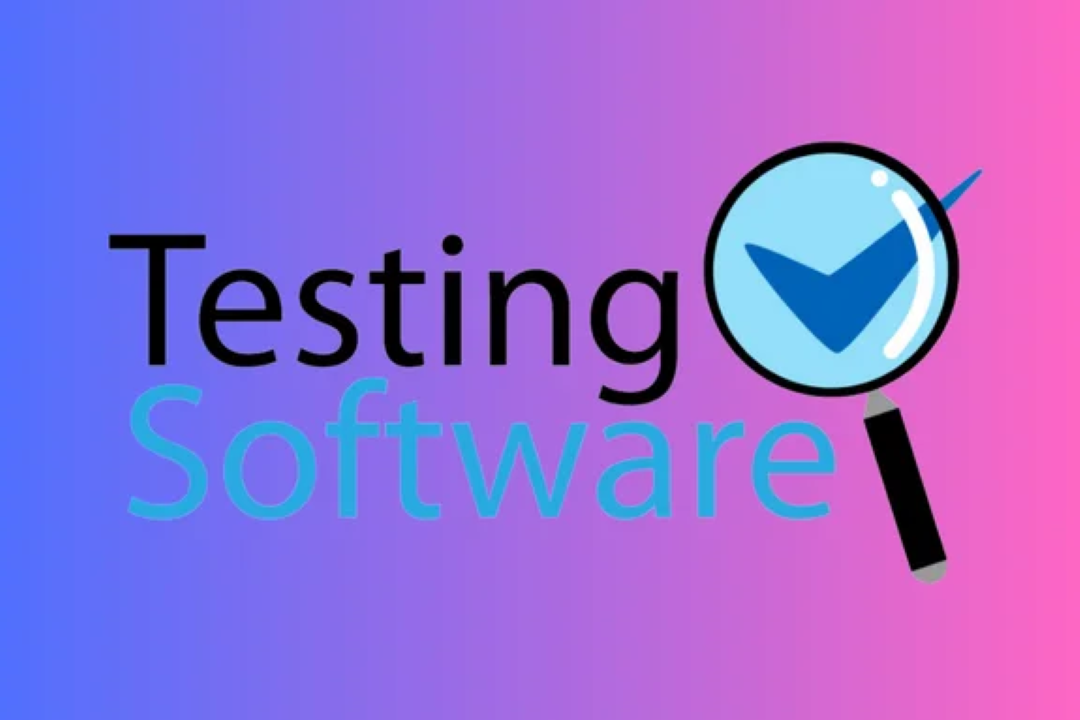Selenium Courses In Ameerpet
Selenium courses in Ameerpet are specialized training programs that focus on teaching individuals ho
Selenium Courses In Ameerpet
Selenium courses in Ameerpet are invaluable for anyone looking to build a career in software testing and automation. As a prime training hub, Ameerpet offers comprehensive courses that equip learners with the skills to effectively use Selenium for automating web applications, which is essential in today’s fast-paced software development environment. Participants engage in hands-on projects that simulate real-world scenarios, enhancing their practical understanding and problem-solving abilities. With the demand for skilled automation testers on the rise, these courses not only boost employability but also provide a solid foundation for advancing in the IT industry.
To Download Our Brochure: https://www.justacademy.co/download-brochure-for-free
Message us for more information: +91 9987184296
Selenium courses in Ameerpet are invaluable for anyone looking to build a career in software testing and automation. As a prime training hub, Ameerpet offers comprehensive courses that equip learners with the skills to effectively use Selenium for automating web applications, which is essential in today’s fast paced software development environment. Participants engage in hands on projects that simulate real world scenarios, enhancing their practical understanding and problem solving abilities. With the demand for skilled automation testers on the rise, these courses not only boost employability but also provide a solid foundation for advancing in the IT industry.
Course Overview
The ‘Selenium Courses in Ameerpet’ provide a comprehensive learning experience for individuals eager to master automated testing for web applications. This course covers essential topics such as the fundamentals of Selenium, test script creation, integration with testing frameworks, and execution of real-time projects to solidify understanding. Participants will gain hands-on experience with tools like Selenium WebDriver, TestNG, and Maven, while also exploring best practices in test automation. Designed for beginners and experienced testers alike, this course aims to enhance skills that are highly sought after in the growing IT job market, ensuring participants are well-prepared to tackle automation challenges effectively.
Course Description
The “Selenium Courses in Ameerpet” offer an in-depth exploration of automated testing for web applications, providing participants with the skills necessary to excel in the field of software testing. This course covers essential topics such as Selenium WebDriver, the creation of effective test scripts, integration with frameworks like TestNG and Maven, and hands-on project work that mimics real-world challenges. Designed for both beginners and seasoned professionals, the course emphasizes practical applications of Selenium in various testing scenarios, equipping learners with the knowledge and experience required to enhance their careers in software quality assurance. Enroll now to gain insights from industry experts and take your first step towards becoming a proficient automation tester.
Key Features
1 - Comprehensive Tool Coverage: Provides hands-on training with a range of industry-standard testing tools, including Selenium, JIRA, LoadRunner, and TestRail.
2) Practical Exercises: Features real-world exercises and case studies to apply tools in various testing scenarios.
3) Interactive Learning: Includes interactive sessions with industry experts for personalized feedback and guidance.
4) Detailed Tutorials: Offers extensive tutorials and documentation on tool functionalities and best practices.
5) Advanced Techniques: Covers both fundamental and advanced techniques for using testing tools effectively.
6) Data Visualization: Integrates tools for visualizing test metrics and results, enhancing data interpretation and decision-making.
7) Tool Integration: Teaches how to integrate testing tools into the software development lifecycle for streamlined workflows.
8) Project-Based Learning: Focuses on project-based learning to build practical skills and create a portfolio of completed tasks.
9) Career Support: Provides resources and support for applying learned skills to real-world job scenarios, including resume building and interview preparation.
10) Up-to-Date Content: Ensures that course materials reflect the latest industry standards and tool updates.
Benefits of taking our course
Functional Tools
1 - Selenium WebDriver: Selenium WebDriver is a key tool in this course, providing a robust platform for browser automation. It allows testers to programmatically control browsers such as Chrome, Firefox, and Edge, ensuring that web applications function correctly. Students will learn how to create scripts that can simulate user interactions, such as clicking buttons, entering text, and navigating web pages. This tool empowers learners to build reliable automated tests that can be executed across various browsers, adapting to the unique behavior of each one.
2) TestNG: TestNG is a powerful testing framework that enhances the capabilities of Selenium. It provides advanced features like annotations, grouping, and parallel test execution, which streamline the testing process. Participants will explore how to organize tests efficiently and manage dependencies, making it easier to maintain large test suites. TestNG also allows generating comprehensive reports, providing insights into test results and improving overall testing transparency. This tool plays a crucial role in scaling automation efforts and integrating testing into continuous integration pipelines.
3) Maven: Maven is a build automation tool used to manage project dependencies and automate the build process. In this course, students will learn how to use Maven to simplify project configuration and ensure that the right versions of libraries are available for their Selenium tests. By using Maven, learners can streamline their workflow, reduce setup time, and enhance collaboration in development projects. Its ability to manage project lifecycle effectively supports cleaner and modular project structures, which is essential for large testing frameworks.
4) Jenkins: Jenkins is an open source automation server that enables continuous integration and continuous delivery (CI/CD). This course will cover how to set up Jenkins to automate the execution of Selenium tests, allowing for real time testing and quicker feedback on code changes. By integrating Jenkins with their Selenium tests, students can create a seamless workflow that promotes the development and testing of applications in parallel. This knowledge equips learners with essential skills in modern software development practices, essential for any automation tester.
5) Cucumber: Cucumber is a tool that supports behavior driven development (BDD), allowing teams to write test cases in plain language. This course will demonstrate how to use Cucumber alongside Selenium to create elegant and easily understandable test scenarios that bridge the gap between technical and non technical team members. Students will learn to design tests that reflect business requirements, enabling better collaboration and more effective testing. By mastering Cucumber, learners can enhance the communication process within teams, ensuring that everyone is on the same page regarding test objectives.
6) POM (Page Object Model): The Page Object Model is a design pattern that enhances test maintenance and readability. In this course, students will be introduced to this methodology, allowing them to create abstractions for web pages in their Selenium tests. By separating test logic from page structure, learners can improve code reusability and make updates easier when the application undergoes changes. This architectural approach is vital for managing larger codebases and contributes to cleaner, more maintainable tests that are easier to understand for all stakeholders involved.
Here are additional key points and concepts that can further enrich your course content on Selenium and automation testing:
7) Cross Browser Testing: This topic focuses on ensuring that web applications function consistently across various browsers and devices. In this course, students will learn the importance of cross browser testing and how to leverage Selenium’s capabilities to automate tests across different platforms, like Chrome, Firefox, Safari, and mobile browsers. This knowledge equips learners with the ability to identify and resolve browser specific issues, enhancing user experience and application reliability.
8) API Testing Integration: Understanding how to incorporate API testing with Selenium is crucial for comprehensive testing strategies. This section will delve into RESTful and SOAP APIs, teaching students how to automate API calls and validate responses. By integrating API testing with their Selenium tests, learners will gain the ability to verify that back end services work in harmony with the front end interface, leading to more thorough application validation.
9) Dynamic Web Elements Handling: Many modern web applications contain dynamic elements that change in response to user actions. This part of the course will provide students with techniques for handling such elements efficiently, including waiting strategies like implicit and explicit waits. Students will learn how to manage elements that load asynchronously, ensuring that their automation scripts are robust and reliable.
10) Test Automation Frameworks: Students will explore the concept of test automation frameworks, realizing how they structure test cases and improve reusability and scalability. We’ll cover various types of frameworks, such as data driven, keyword driven, and hybrid frameworks. By understanding these frameworks, learners can create organized test suites that streamline the testing process and foster collaboration among team members.
11 - Version Control with Git: Integration with version control systems like Git is vital for any development project, including automation testing. This course will introduce students to Git basics, including branching, merging, and collaboration workflows. By mastering Git, learners can track changes to their test scripts and collaborate more effectively with development teams, enhancing overall project coherence and stability.
12) Reporting and Logging: Effective reporting is essential for tracking test results and diagnosing failures. Students will learn how to generate detailed reports using tools like ExtentReports or Allure, which provide visual representations of test outcomes. Additionally, logging best practices will be covered, helping learners to implement logging within their tests to capture detailed execution data and aid in troubleshooting.
13) CI/CD Pipeline Implementation: Building upon the Jenkins knowledge, students will learn how to effectively implement CI/CD pipelines to automate deployment and testing processes. This section will cover integrating Selenium tests into the pipeline, ensuring that every code change is automatically tested before it reaches production. Understanding CI/CD practices will prepare learners for modern software development workflows and improve software delivery speed and quality.
14) Mobile Testing with Appium: As mobile applications become increasingly prevalent, understanding how to extend Selenium skills to mobile testing is essential. This course segment will introduce Appium, the tool for automating mobile applications. Students will learn how to write tests for both Android and iOS platforms, making their skill set versatile in testing across various application types.
15) Performance Testing Integration: Although primarily focused on functional testing, the course can touch upon integrating performance testing within the automation framework. Introducing tools like JMeter for assessing an application’s response time under load will provide valuable skills for comprehensive application evaluation, addressing both functional and non functional requirements.
16) Security Testing Basics: While Selenium is not primarily a security testing tool, understanding the basics of security testing can benefit automation testers. This section will provide insights into common vulnerabilities (e.g., SQL injection, XSS) and how to automate tests that check for these vulnerabilities, offering a more holistic approach to application testing.
Each of these points can enhance the learning experience for students, equipping them with a robust and comprehensive understanding of Selenium and automation testing best practices.
Browse our course links : https://www.justacademy.co/all-courses
To Join our FREE DEMO Session:
This information is sourced from JustAcademy
Contact Info:
Roshan Chaturvedi
Message us on Whatsapp: +91 9987184296
Email id: info@justacademy.co












